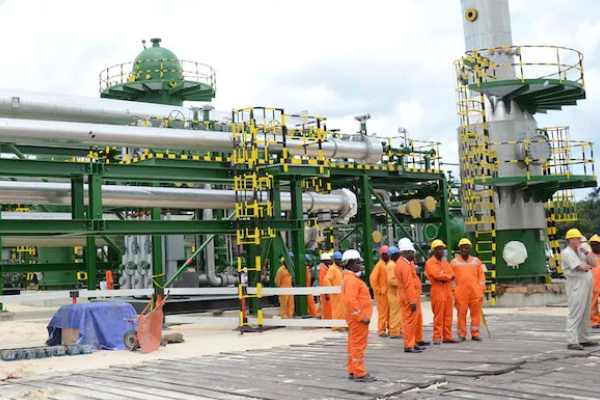Gas expansion projects to gulp $20bn yearly – FG
The Federal Government, on Monday, said about $20bn annual investments would be needed to achieve the desired gas expansion projects in Nigeria and deepen the use of gas across the country.
It disclosed this through the Nigeria Extractive Industries Transparency Initiative at the Decade of Gas Action Plan Dialogue, organised by the African Initiative for Transparency, Accountability and Responsible Leadership, in Abuja.
The Executive Secretary, NEITI, Ogbonnaya Orji, explained that for the gas utilisation policy of the Federal Government to work, there was a compelling need for deliberate ambitious investment in gas infrastructure.
This, he said, would include investments in specific connectivity across upstream facilities to processing, power plants, and other end uses.
“The network code provides a framework through third-party access to resolve some of the connectivity issues, but to a large extent, achieving the desired gas expansion will require an estimated $20bn annually to bridge Nigeria’s gas infrastructure.
“Given the shrinking fossil fuel investment landscape, clarity is required of the infrastructure to be prioritised,” Orji stated, while speaking on how to review Nigeria’s gas utilisation policy to align with the country’s energy transition plan.
He pointed out that the largest gas reserves in Africa was in Nigeria, as the country’s gas reserves was the 9th largest globally.
Orji said NEITI reports put the country’s gas reserves at over 200 trillion cubic feet, as the agency’s position was consistent with the provisions of the Petroleum Industry Act passed in 2021.
“The Petroleum Industry Act provided the most significant progress for the gas sector in strengthening governance and providing fiscal frameworks for the sector’s growth.
“We call on the government to urgently put a national gas utilisation policy in place. Such policy needs to be clear on the specific roles of the industry, government, and investors in implementing the plan.
“Similarly, the gas utilisation plan should show the market-driven opportunities that would successfully translate the gas plans into sustainable economic development. NEITI recommends a costed plan with realistic targets that is easy to implement,” Orji stated.
On his part, the Executive Director, African Initiative for Transparency, Accountability and Responsible Leadership, Louis Ogbeifun, said many countries were currently abandoning fossil fuels.
He called on the Federal Government to increase its crude oil production in the short run beyond the current level to have money to diversify and invest in other alternative sources.
“In the medium and long-term periods, natural gas, which Nigeria has in abundance, which has been described as cleaner than coal or petroleum, is also within the fossil fuel family.
“Therefore, walking off fossil fuel for Nigeria is not immediately foreseeable. The question is, how does Nigeria maximise its hydrocarbon benefits with so much of its assets lost to vandalism, crude theft, and the massive depreciation of its currency?
“Nigeria’s focus on using gas as a sustainable energy alternative is capital-intensive. It has been speculated that Nigeria would need over $1tn to achieve the 2060 zero-emission targets,” Ogbeifun stated, adding that citizens must be worried about how to fund gas projects in a manner that would be cost-efficient




